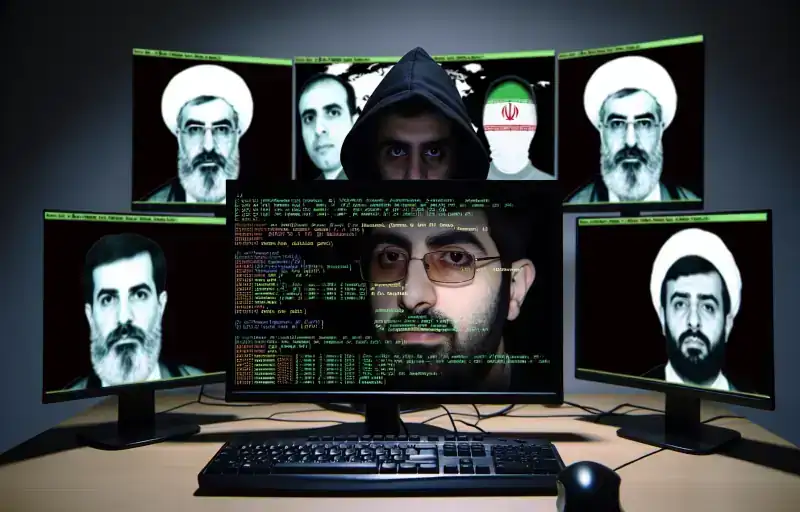
“Unveiling GreenCharlie: Iranian Cyber Threat Group’s Sophisticated Network Targets U.S. Political Sphere”
Analyzing GreenCharlie: Unveiling New Cyber Threat Infrastructures and Their Impact on U.S. Political Security
In the ever-evolving landscape of cybersecurity threats, a new development has emerged that underscores the persistent vigilance required to protect U.S. political campaigns. Cybersecurity researchers at Recorded Future’s Insikt Group have recently uncovered a sophisticated network infrastructure orchestrated by Iranian threat actors. This network, attributed to a group known as GreenCharlie, is part of a broader constellation of Iranian cyber threats that include APT42, Charming Kitten, and several others. The meticulous setup involves the use of dynamic DNS providers such as Dynu, DNSEXIT, and Vitalwerks, which facilitate the registration of domains integral to phishing attacks.
These domains cleverly mimic legitimate cloud services, file sharing, and document visualization platforms. By adopting names like “cloud,” “uptimezone,” and “doceditor,” they create a veneer of credibility that can deceive even the discerning eye. The shift to primarily using the .info top-level domain marks a strategic evolution from their previous choices, which included .xyz and .online among others. This change could potentially signal an adaptation to avoid detection or blacklisting based on domain reputation.
The danger posed by GreenCharlie lies not just in their deceptive domain names but in their deployment of malware through these channels. Tools such as POWERSTAR and GORBLE—variants of sophisticated PowerShell implants—have been identified in their arsenal. These tools are part of a larger suite of malware that evolves continuously, complicating efforts to defend against them. For instance, a recent campaign used a new variant called BlackSmith to target prominent individuals, illustrating the group’s focus on high-value targets.
The operational tactics of GreenCharlie are alarmingly effective. They typically initiate their attacks with a phishing email, leveraging current events or political tensions to increase their success rates. Once the victim engages with the malicious link or file, the malware is deployed to establish a foothold in the victim’s system. This is followed by communication with command-and-control servers that orchestrate further actions like data exfiltration or payload delivery.
Recorded Future’s investigation revealed that since May 2024, GreenCharlie has been actively registering numerous dynamic domain name service (DDNS) domains. Analysis of traffic between these domains and Iran-based IP addresses provides concrete evidence of their origin and malicious intent. Moreover, connections have been established between these domains and command-and-control servers used by other known malware deployed by the group, reinforcing the links within this threatening ecosystem.
The use of services like Proton virtual private network (VPN) or Proton Mail by GreenCharlie to hide their activities adds another layer of complexity to tracking and mitigating these threats. Their operations are not just a technical challenge but also a significant geopolitical concern, given the tensions between Iran and the U.S.
This revelation comes at a time when Iranian cyber activities appear to be intensifying. Just this week, Microsoft exposed efforts by another Iranian group targeting sectors in both the U.S. and U.A.E., while U.S. government agencies have reported on collaborations between Iranian hackers and ransomware syndicates targeting critical sectors.
The continuous emergence of such sophisticated threats highlights an urgent need for enhanced cybersecurity measures and international cooperation to safeguard not only political entities but also critical infrastructure and public trust in democratic processes. As we move closer to another election cycle, the stakes could not be higher, and the need for vigilance and proactive defense becomes increasingly paramount.














